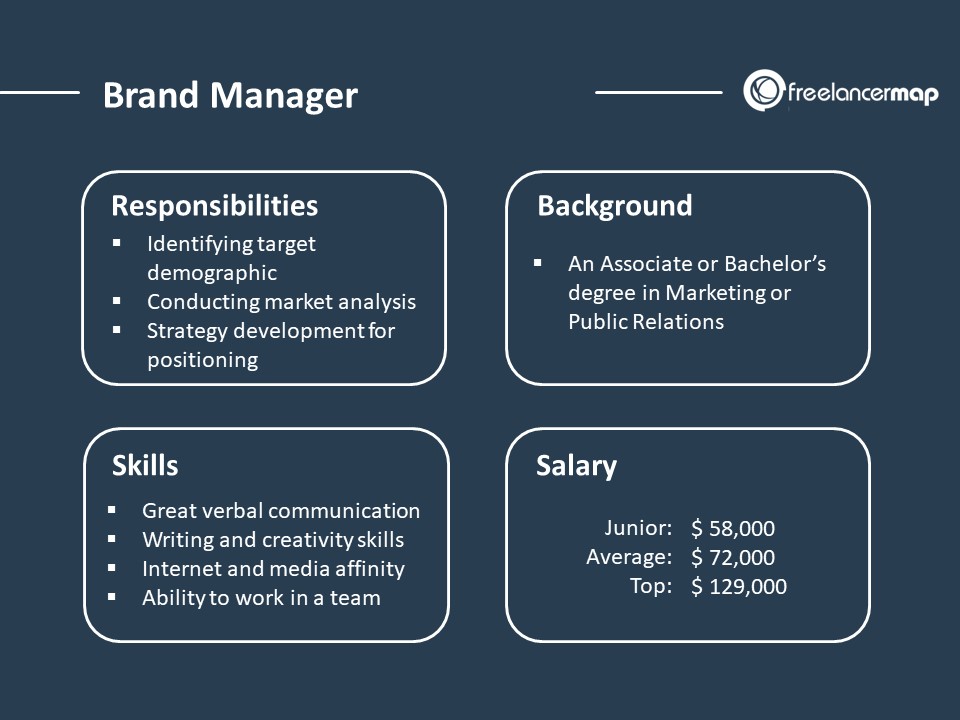
In this article we'll explore the Job Description, Education, and Salary for a career as a project manager. You should also consider other details, including the salary. It is worth pursuing a degree as Project Manager if you are serious about this career. This career path is one of the fastest-growing and has many benefits. Read on !... to learn more. Have a great career hunting experience!
Job description
A career in project management requires strategic awareness, the ability to understand and connect the needs of customers to the company's future vision, and the ability to lead cross-functional teams and external vendors. You will be expected to set your own goals, influence the company's strategy, and gain support from stakeholders. While delivering measurable results, project managers are expected to be accountable for achieving them. A project manager acts as a product visionary. He or she must ensure resources and time alignment with the company’s strategic vision.

You may find work as a project manager in the healthcare, insurance, marketing and IT industries. A project manager can work for large or small companies and must manage teams that complete projects within budget and timeframes. A project manager must know the best methods of project management and be able work well under pressure.
Salary
You can expect to earn more if you are a project manager. Project managers oversee the completion of a range projects. They ensure that projects are completed within the budget and on time. The salary of a manager of projects can vary depending on where they work, but the job description in most cases is similar. The project manager might be interested to pursue an executive job or even start their own company.
Project managers can work their way up to top executive positions, depending on their industry. Many high-level positions require project management experience. Business acumen is essential for executives. They also need experience leading teams. An MBA in this field can help you develop these skills and increase your income. But, the salary for project managers can be very high. The field of experience and salary can have an impact on how much a project manager earns.
Education required
As a project manager, your role will be to oversee the overall project, not just to manage the details of a specific task. Although project managers need not be experts in all areas of the project, they must be capable of managing multiple aspects. This career path is open to both new graduates and professionals who have extensive experience in the field. This career path requires a bachelor's level of education, regardless of your experience.

If you want to start your career as a project manager, you may want to consider getting an undergraduate degree in business or a related subject. This will give the knowledge and experience required to lead successful projects. A graduate degree is possible if you are interested in larger-scale project management positions. You will also be able to assume leadership positions and take on large-scale responsibilities.
FAQ
Why is it important that companies use project management methods?
To ensure projects run smoothly and meet deadlines, project management techniques are employed.
Because most businesses depend heavily on project work to produce goods or services,
These projects are essential for companies.
Without effective project management, companies may lose money, time, and reputation.
What are the 3 main management styles?
These are the three most common management styles: participative (authoritarian), laissez-faire (leavez-faire), and authoritarian. Each style has strengths and flaws. Which style do YOU prefer? Why?
Autoritarian - The leader sets direction and expects everyone else to follow it. This style is best when the organization has a large and stable workforce.
Laissez faire - Each individual can decide for himself/herself. This style is most effective when the organization's size and dynamics are small.
Participative – The leader listens and takes in ideas from all. This approach works best in small organizations where everyone feels valued.
What does the term "project management” mean?
That is the management of all activities associated with a project.
We include defining the scope of the project, identifying the requirements, preparing the budget, organizing the project team, scheduling the work, monitoring progress, evaluating results, and closing down the project.
What is TQM?
The industrial revolution was when companies realized that they couldn't compete on price alone. This is what sparked the quality movement. If they wanted to stay competitive, they needed to improve their quality and efficiency.
Management developed Total Quality Management to address the need for improvement. It focused on all aspects of an organisation's performance. It included continuous improvement processes, employee involvement, and customer satisfaction.
What is Six Sigma?
It's an approach to quality improvement that emphasizes customer service and continuous learning. It is a method that eliminates defects using statistical techniques.
Motorola created Six Sigma as part of their efforts to improve manufacturing processes in 1986.
The idea spread quickly in the industry. Today many organizations use six-sigma techniques to improve product design.
What are the most important management skills?
Managerial skills are crucial for every business owner, regardless of whether they run a small store in their locality or a large corporation. They include the ability to manage people, finances, resources, time, and space, as well as other factors.
Management Skills are also needed when you're setting goals and objectives, planning strategies, leading teams, motivating employees, resolving problems, creating policies and procedures, and managing change.
As you can see, there are many managerial responsibilities!
Why is Six Sigma so popular?
Six Sigma is easy and can deliver significant results. It provides a framework that allows for improvement and helps companies concentrate on what really matters.
Statistics
- Hire the top business lawyers and save up to 60% on legal fees (upcounsel.com)
- Your choice in Step 5 may very likely be the same or similar to the alternative you placed at the top of your list at the end of Step 4. (umassd.edu)
- The BLS says that financial services jobs like banking are expected to grow 4% by 2030, about as fast as the national average. (wgu.edu)
- The profession is expected to grow 7% by 2028, a bit faster than the national average. (wgu.edu)
- UpCounsel accepts only the top 5 percent of lawyers on its site. (upcounsel.com)
External Links
How To
How can you create a Quality Management Plan, (QMP)?
QMP (Quality Management Plan) is a system to improve products and services by implementing continuous improvement. It emphasizes on how to continuously measure, analyze, control, and improve processes, product/service, and customer satisfaction.
QMP is a method that ensures good business performance. QMP improves production, service delivery, as well as customer relations. QMPs should cover all three dimensions - Products, Processes, and Services. When the QMP includes only one aspect, it is called a "Process" QMP. If the QMP is focused on a product/service, it's called a QMP. QMP is also used to refer to QMPs that focus on customer relations.
Scope is the most important element in implementing a QMP. Strategy is the second. These elements can be defined as follows.
Scope: This describes the scope and duration for the QMP. This scope can be used to determine activities for the first six-months of implementation of a QMP in your company.
Strategy: This describes the steps taken to achieve the goals set out in the scope.
A typical QMP is composed of five phases: Planning Design, Development, Implementation and Maintenance. Each phase is explained below:
Planning: In this stage the QMP's objectives and priorities are established. Every stakeholder involved in the project is consulted to determine their expectations and needs. After identifying the objectives, priorities, and stakeholder involvement, the next step is to develop the strategy for achieving these objectives.
Design: This stage involves the creation of the vision, mission, strategies and tactics necessary to implement the QMP successfully. These strategies are implemented by the development of detailed plans and procedures.
Development: Here, the team develops the resources and capabilities that will support the successful implementation.
Implementation: This involves the actual implementation of the QMP using the planned strategies.
Maintenance: The maintenance of the QMP is an ongoing task.
Additional items must be included in QMP.
Participation by Stakeholders is essential for the QMP's continued success. They should actively be involved during the planning and development, implementation, maintenance, and design stages of QMP.
Project Initiation - A clear understanding of the problem statement, and the solution is necessary for any project to be initiated. The initiator must know the reason they are doing something and the expected outcome.
Time frame: It is crucial to know the time frame for the QMP. For a short time, you can start with the simple version of the QMP. If you are looking for a longer-term commitment, however, you might need more complex versions.
Cost Estimation: Cost estimation is another vital component of the QMP. Planning is not possible without knowing the amount of money you will spend. The QMP should be cost-estimated before it can begin.
QMPs are more than just documents. They can also be updated as needed. It changes as the company grows. It should be reviewed on a regular basis to ensure that it is still meeting the company's needs.